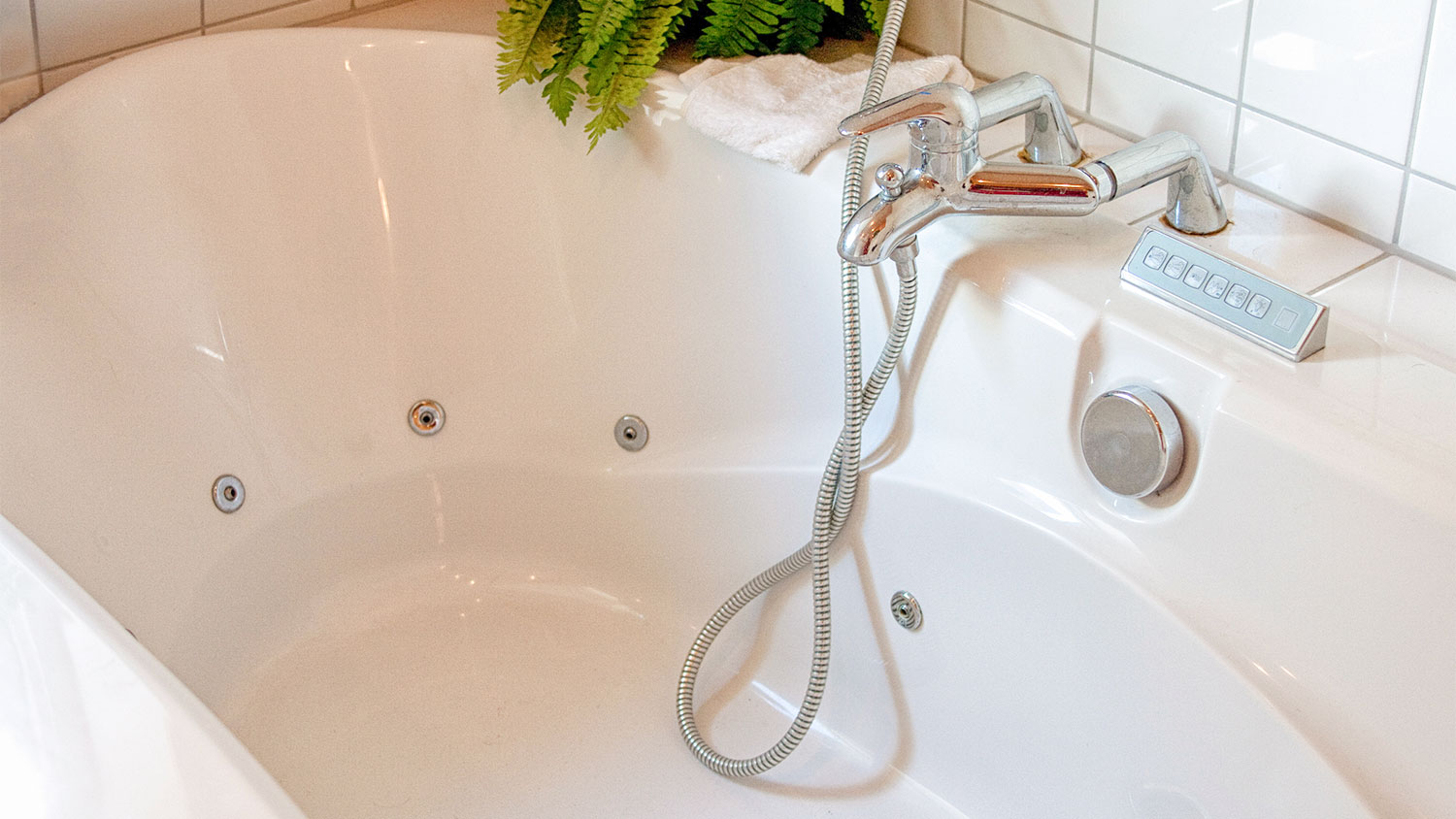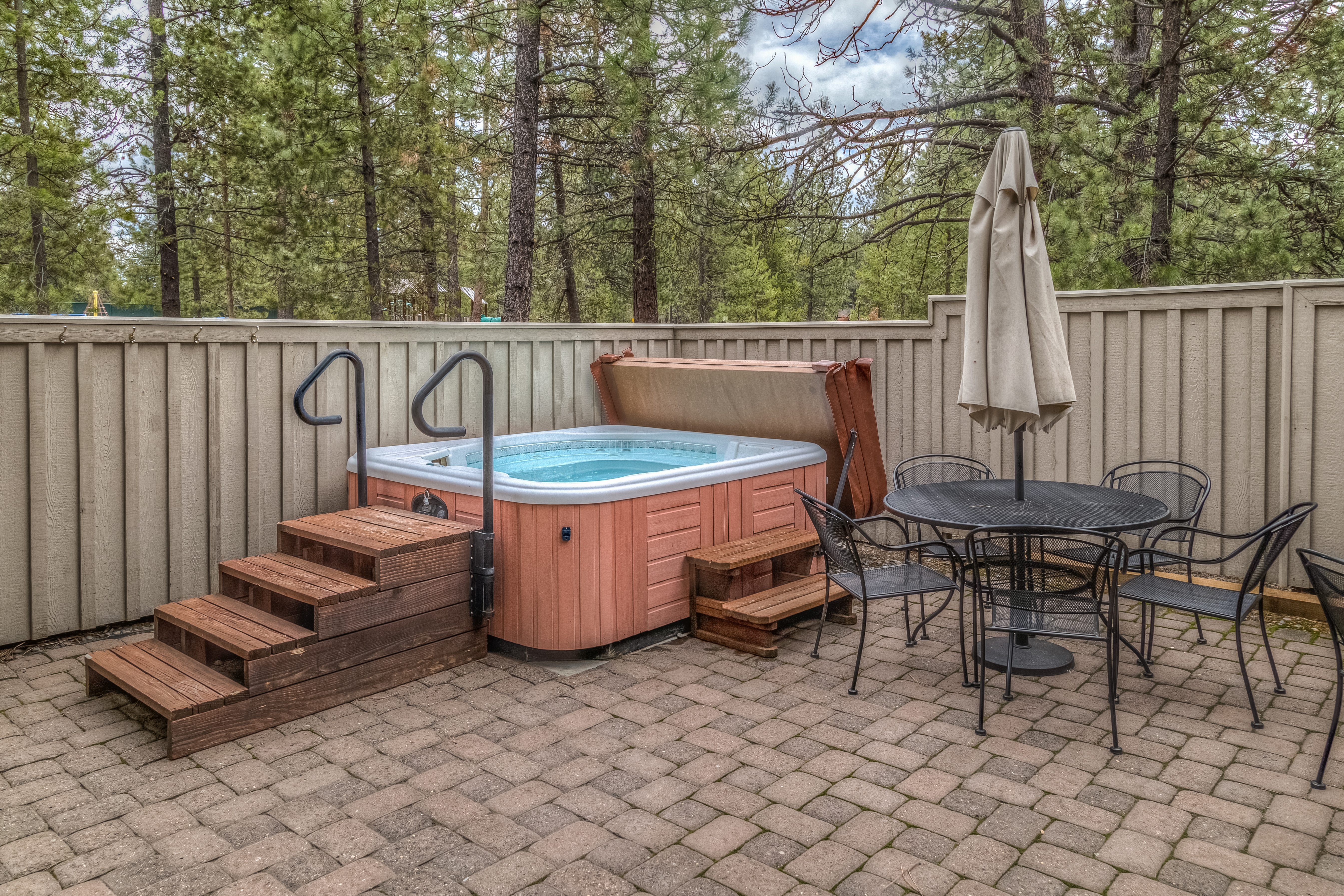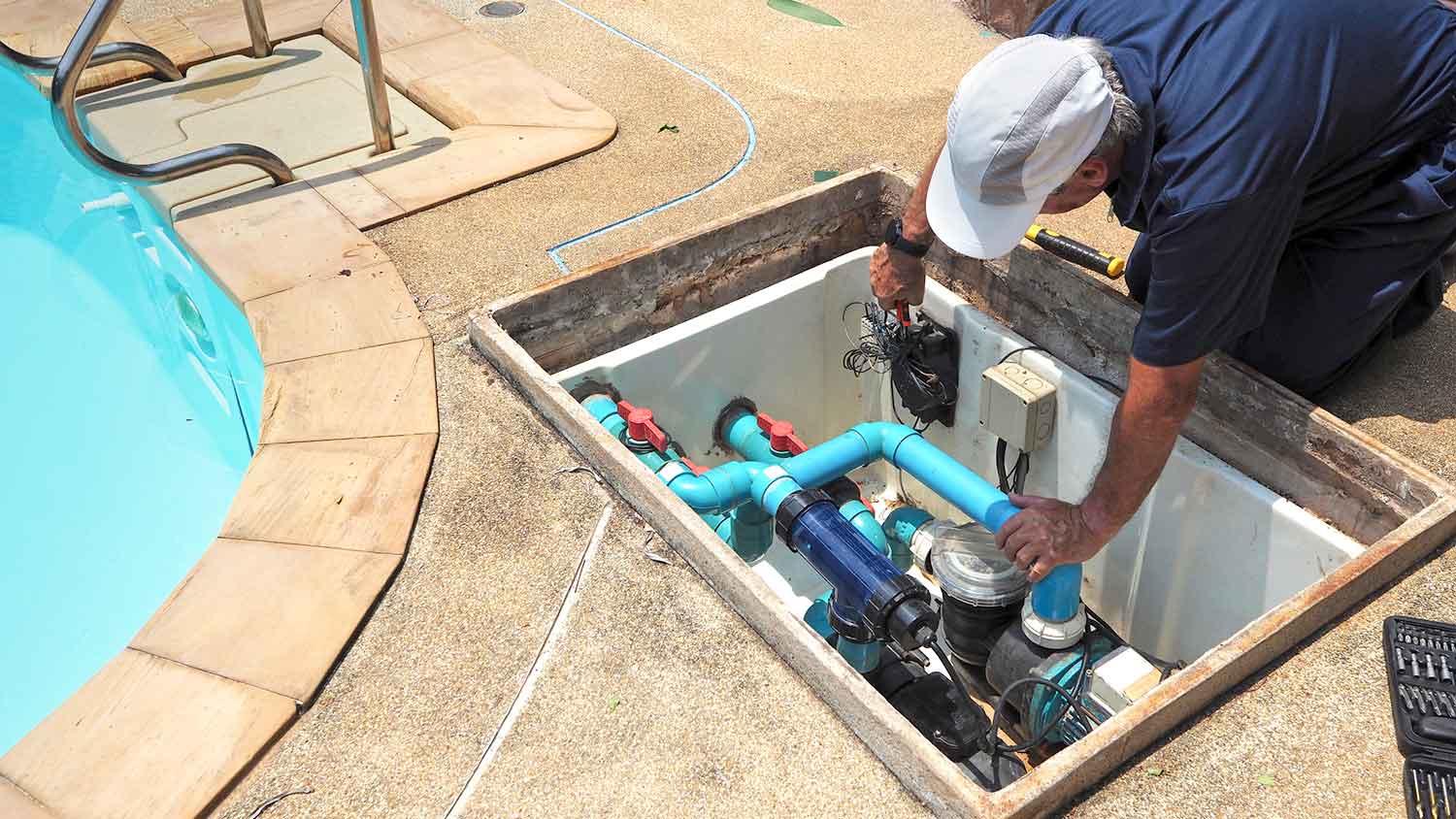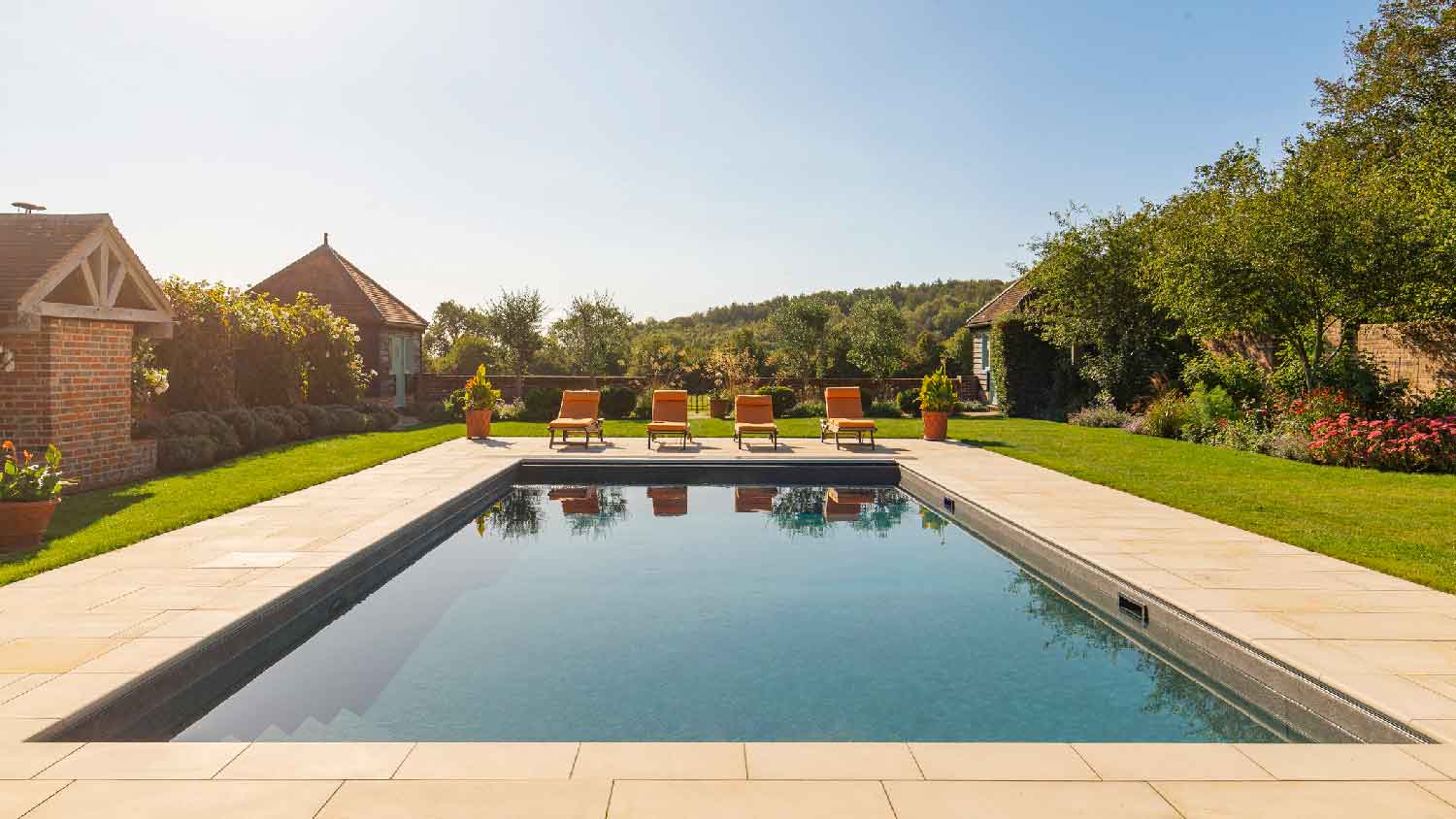
Discover the average hot tub maintenance cost, what impacts pricing, and how to save money. Get expert tips to keep your hot tub running smoothly all year.
Whirlpool tub installation cost ranges from $1,000 to $10,500, with most homeowners paying $4,000. Main cost factors include tub type, size, materials, labor, and additional plumbing or electrical work.


Installing a whirlpool tub means adding a bathtub with built-in jets for a spa-like experience in your home bathroom.
Tub type, size, and special features—like digital controls or lighting—are the main factors affecting installation cost.
Labor, plumbing, and electrical upgrades can increase the overall project budget, especially if your bathroom needs modifications.
Adding a whirlpool tub can boost your bathroom’s appeal and comfort, providing relaxation and potential value for your home.
To avoid unexpected expenses, factor in permit fees, structural changes, and ongoing maintenance needs.
This article was created using automation technology and thoroughly fact-checked and edited by an Angi Editor in accordance with our AI policy.
Whirlpool tub installation costs average $4,000, with most ranging from $2,500 to $7,500, depending on the tub type, size, and installation complexity. Homeowners may pay as little as $1,000 for a basic unit or as much as $10,500 for luxury models with custom features. Costs are often quoted per tub, including installation.
This guide breaks down every aspect of whirlpool tub installation cost, helping you plan, budget, and understand what influences your total investment. Let’s look at the main cost factors and what to expect during your project.
Understanding what drives the price of a whirlpool tub installation helps you make informed choices, whether you’re upgrading an existing tub or planning a full bathroom remodel. The type, size, material, and brand of your tub all play a role in the overall cost.
The type of whirlpool tub you choose has a significant impact on installation cost. Drop-in, alcove, freestanding, and corner tubs each have unique installation requirements.
Air-jetted tubs use air to create bubbles, while water-jetted tubs use water streams for massage. Air-jetted models tend to be less expensive. Features like built-in heaters, chromatherapy lighting, and digital controls also influence the price.
| Type | Description | Average Tub Cost | Average Installation Cost |
|---|---|---|---|
| Drop-in | Installed into a deck or surround | $1,200–$7,000 | $700–$2,000 |
| Alcove | Fits between three walls | $900–$4,500 | $600–$1,500 |
| Freestanding | Stands alone, more flexible placement | $1,700–$9,000 | $1,200–$3,000 |
| Corner | Fits into a bathroom corner | $1,200–$8,000 | $1,000–$2,500 |
| Air-jetted | Uses air for massage | $1,000–$6,000 | $700–$2,000 |
| Water-jetted | Uses water jets for massage | $1,200–$8,500 | $800–$2,500 |
The dimensions and capacity of your whirlpool tub affect both the purchase price and installation labor. Standard tubs are easier and less expensive to install, while oversized or deep soaking tubs require more plumbing, electrical power, and sometimes even floor reinforcement.
| Size Category | Dimensions (In.) | Description | Average Tub Cost | Average Installation Cost |
|---|---|---|---|---|
| Standard | 60x32–36 | Fits most bathrooms | $900–$3,500 | $600–$1,500 |
| Oversized | 72x36 or larger | More spacious, higher capacity | $2,000–$9,000 | $1,200–$3,000 |
| Deep soaking | 18 or deeper | Allows full immersion | $1,800–$8,000 | $1,000–$2,500 |
Larger tubs may also increase water heater demand, which can add to installation costs.
The material used for the tub plays a key role in both costs and long-term performance. Acrylic and fiberglass are lightweight, affordable, and easy to maintain, but can scratch more easily. Cast-iron and stone tubs are durable and retain heat longer, but they are much heavier, often requiring extra floor support and higher installation fees. Premium materials offer a luxury look but come with a higher upfront price and additional labor.
Choosing a heavier or premium material may mean investing in structural upgrades to support the extra weight, especially in older homes or on upper floors.
Brand reputation, product lines, and warranties affect the cost of whirlpool tub installation. Well-known brands often offer longer warranties, more features, and higher reliability, but at a premium price. Some brands include proprietary features or require specialized installation, increasing labor costs. Researching brands and comparing product reviews can help you find the right balance of quality and value for your budget.
When budgeting for whirlpool tub installation, it’s important to consider not just the price of the tub but the full scope of labor, delivery, disposal, and service add-ons.
A standard whirlpool tub installation involves several professionals, including plumbers, electricians, and sometimes general contractors. Plumbers charge $50 to $200 per hour, while electricians charge $65 to $150 per hour. Minimum service fees often apply, especially for small jobs or repairs.
Labor costs rise if your project requires retrofitting, relocating plumbing or electrical lines, or custom tile work. Luxury or spa-grade tubs may require specialized installers, increasing the hourly rate and total labor hours.
Labor rates also vary by region, with urban areas and regions having higher living costs, incurring higher installation fees.
Delivery fees for whirlpool tubs range from $100 to $500, depending on the tub’s size and the delivery distance. Some retailers include free standard delivery for in-stock models, but oversized or heavy tubs may incur extra charges for special handling or stair carries. Remote locations or deliveries requiring cranes or lifts will cost more.
Disposing of an old tub or removing construction debris costs $150 to $400. This fee may include labor, transportation, and landfill or recycling charges. If environmental recycling is required, expect an additional fee. Some installers bundle haul away with installation, but always confirm what’s included in your contract.
Several add-ons can increase your total whirlpool tub installation cost, including:
Upgraded fixtures or specialty faucets
Custom tile surrounds or enclosures
Built-in shelving or storage solutions
Integrated lighting, sound systems, or digital controls
Water heater upgrades to accommodate larger tubs
Structural reinforcement, such as strengthening floor joists
Required permits and inspection fees
Waterproofing and mold prevention treatments
Each of these features enhances your bathroom’s functionality and style, but also increases the overall project budget.
There are more expenses to think about beyond the initial installation, including ongoing costs and long-term care.
Whirlpool tubs come with a manufacturer’s warranty covering parts, electronics, and sometimes labor for a period of one to five years. Extended warranties or service plans cost $100 to $500, offering peace of mind for major repairs. Some brands include lifetime coverage on select components. Always review what’s covered and the process for making a claim—this can help avoid unexpected out-of-pocket costs later.
Running a whirlpool tub increases water and electricity use. Each bath can use 50 to 80 gallons of water, and the pump and heater draw additional power. Expect utility bills to rise, especially with frequent use or larger tubs. Choosing an energy-efficient model with insulated shells and variable-speed pumps can reduce operating costs by up to 20%.
Routine maintenance is key to keeping your whirlpool tub running smoothly. This includes cleaning jets, filters, and surfaces with non-abrasive cleaners every few weeks, at a cost of $10 to $30 per year for supplies. Annual professional servicing ranges from $100 to $300. Regular upkeep prevents mold, mildew, and mineral buildup, protecting both your investment and your health.
Common whirlpool tub repairs include:
Pump replacement: $250 to $700
Jet cleaning or repair: $75 to $300
Fixing leaks: $150 to $400
More complex issues, like electrical faults or electronic control panel replacement, may require a specialist and cost $300 to $1,000. Regular maintenance helps reduce the need for costly repairs, but as your tub ages, parts may become harder to find, increasing both repair time and expense.
Some homeowners consider installing a whirlpool tub themselves to save on labor. DIY installation costs include the tub, materials ($50 to $300), tools (which may need to be purchased or rented for $50 to $200), and permit fees ($75 to $250). While you can save $1,000 to $3,000 in labor, DIY projects carry risks—such as leaks, electrical hazards, and code violations—that can lead to expensive repairs or voided warranties.
DIY installation requires plumbing, electrical, and construction skills, plus a time commitment of 12 to 24 hours or more. Mistakes may cause water damage or fail safety inspections. Local hot tub installers bring experience and guarantee their work, ensuring your tub operates safely and reliably for years to come.
| Installation Type | Average Cost | Inclusions |
|---|---|---|
| DIY | $1,000–$4,500 | Tub, materials, tools, permits |
| Professional | $2,500–$7,500 | Tub, labor, professional installation |
Deciding whether to repair or replace your whirlpool tub depends on several factors. If your tub is relatively new, under warranty, or only needs minor repairs, fixing it is often the best choice. Repairing a whirlpool tub costs between $150 and $1,000, depending on the specific issue. However, if the tub is over 10 years old, out of warranty, or has multiple issues, replacement may be a more cost-effective option.
A good rule of thumb is the 50% rule. If repairs exceed 50% of the cost of a new tub and installation, replacement makes more sense. Upgrading your tub during a larger remodel can also add value and modernize your bathroom, while reducing long-term repair costs.
Keep your whirlpool tub installation cost-effective with the following tips:
Compare multiple quotes from licensed pros.
Choose standard sizes and materials over custom options.
Schedule installation during off-peak seasons.
Bundle installation with other bathroom upgrades.
Reuse existing plumbing or electrical lines if possible.
Opt for energy-efficient models to reduce long-term costs.
Perform simple prep work (like demolition) yourself if safe.
Home is the most important place on earth, which is why Angi has helped more than 150 million homeowners transform their houses into homes they adore. To help homeowners with their next project, Angi provides readers with the most accurate cost data and upholds strict editorial standards. We extensively research project costs to develop the pricing data you see, so you can make the best decisions for you and your home. We rely on reputable sources, including the U.S. Bureau of Labor Statistics, academic journals, market studies, and interviews with industry experts—all to ensure our prices reflect real-world projects.
Want to help us improve our cost data? Send us a recent project quote to [email protected]. Quotes and personal information will not be shared publicly.
From average costs to expert advice, get all the answers you need to get your job done.

Discover the average hot tub maintenance cost, what impacts pricing, and how to save money. Get expert tips to keep your hot tub running smoothly all year.

We could all use some relaxation, but we don’t always have the budget. This guide will show you how much an in-ground hot tub costs—no matter the build.

Swim spa costs vary, but each unit offers the benefits of a pool and hot tub combined. Use this guide to plan your budget.

Saltwater hot tubs are a great alternative to traditional options. Discover the pros and cons of saltwater hot tubs to see if one is right for you.

Find out the average pool pump repair cost, key price factors, and ways to save. Get expert tips to budget for your pool pump repair.

Common reasons for pool jets not working include clogs, low water levels, and air leaks. Read this to learn what’s causing your jet problem and how to fix it.